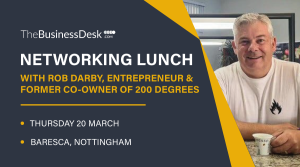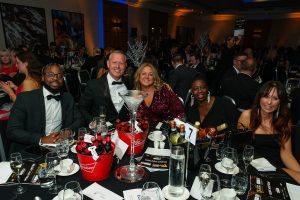Midlands Family Business Conference: Trust is the name of the game
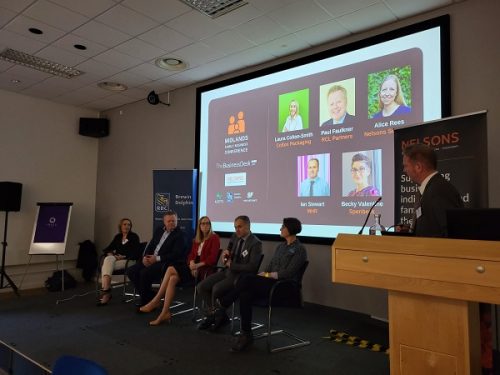

The event, attended by almost 60 family business owners and advisers, gathered together stakeholders from across region to discuss the challenges and opportunities facing the vitally important sector.
The fully-interactive event was supported by headline sponsor Nelsons, along with Azets, RBC Brewin Dolphin and SF Recruitment.
The morning began with an introduction from TheBusinessDesk.com’s joint managing director, Alex Turner, who introduced Alice Rees, partner at Nelsons, and then keynote speaker Ian Stewart, marketing director at Ruddington-based, family-owned company MHR.
The HR, payroll and finance software company was founded 40 years ago by John Mills, who is now group chairman, while his daughter Jessica is currently chair of MHR International.
Stewart said: “MHR is a software company and we engineer our own software. It’s an important part of what we do – we are very keen to keep innovating.
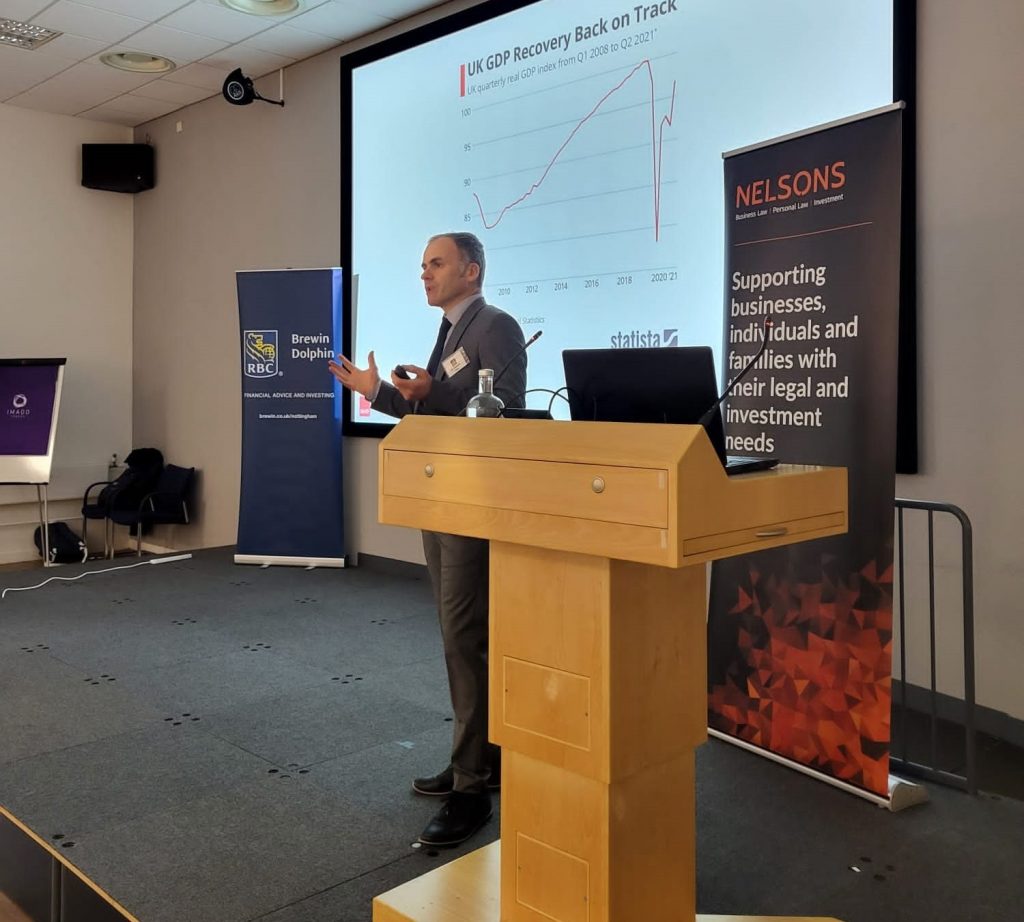
Ian Stewart, MHR
“A PwC report suggested that it is family businesses that drive innovation, especially in times of challenge when they continue to invest and deliver innovation.”
“That survey talks about trust and two-thirds of employees believe trust is an important part of joining a family business.”
Stewart joined MHR when it had about 250 staff and it has now grown to 900, and he has benefitted from the knowledge and experience of the family founders.
“For myself, through the conversations I have with the owners of our organisation, you fully understand the experience that they’ve gone through running their organisation and what it has meant to them,” he said.
The second session of the morning saw our audience breakout into round table groups to discuss the opportunities and challenges of running a family business. These concurrent discussions generated fierce and fascinating debate centred around: money and finance; strategy and growth; succession and the family plan; and HR and recruitment.
Just some of the topics coming out of the strategy and growth session included the desire to never take the emotion out of running a family business – it can often give those running the company a distinct advantage as they’re deemed to care more than a “normal” counterpart.
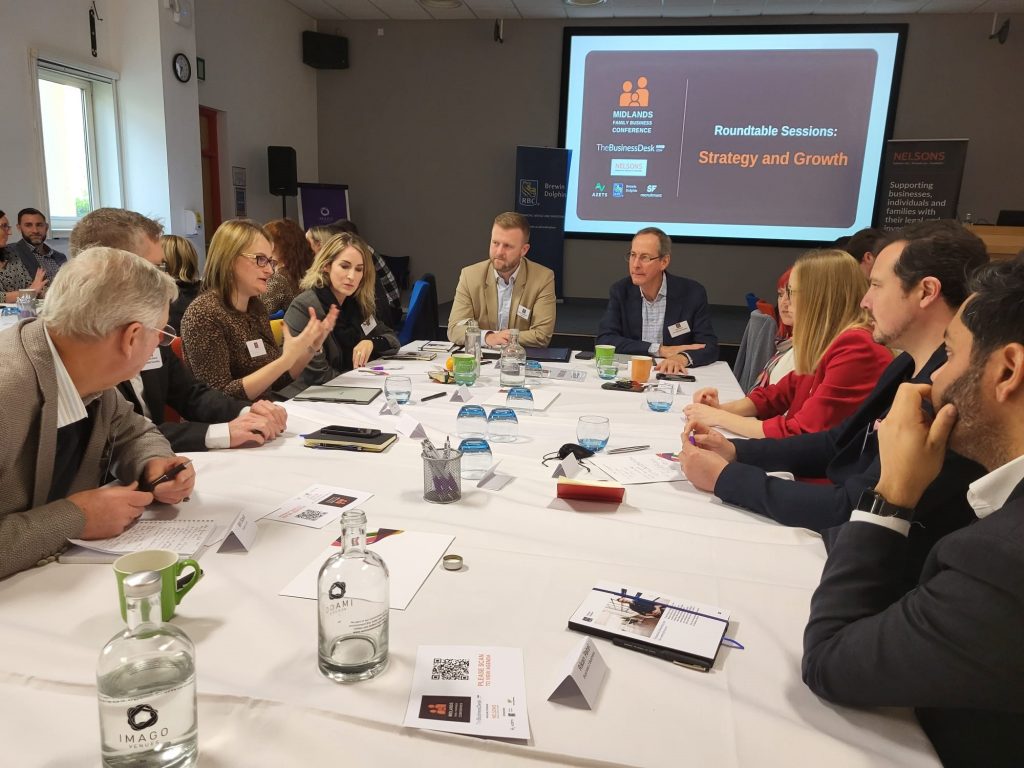
Meanwhile, the succession and the family plan session underlined the fact that those looking to take over at the helm of a family business had to respect the will of the exiting generation – and what they wanted for the business, going forward.
The advisers taking part in the session added that, as far as their work with family businesses was concerned, “no one size fits all”, while it was important to spend as much time with the family owners to understand exactly what they are going through when an exiting relative might not want to let go. Again, trust was mentioned as being vitally important.
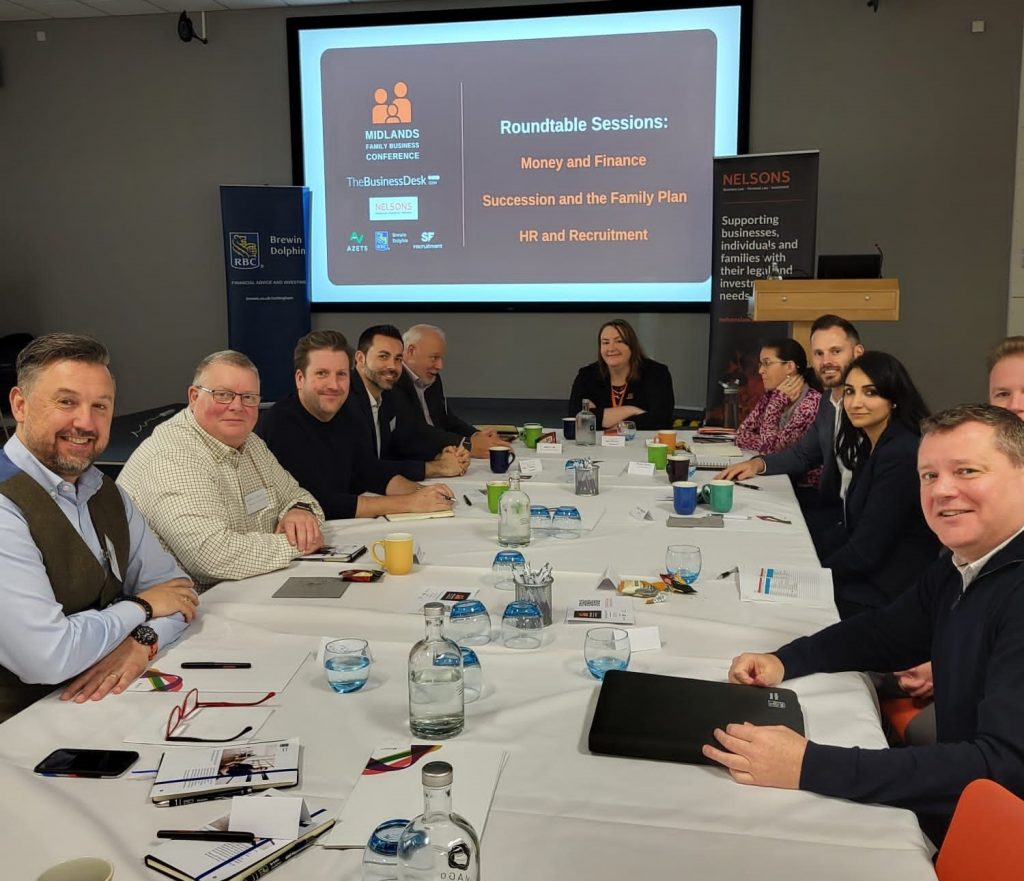
There was also a sense that different generations assessed risk and opportunity very differently, with the older, often founder generation keen to husband resources and protect what they have. However younger generations were looking to make their own mark and took the view that “standing still is really falling behind”.
Differences and tensions were at their highest during the transition between generations, when the younger generation might be taking most of the responsibility for the day-to-day “tactics” of how the business is run, but did not control the longer-term “strategy” that would include decisions on funding and entering or exiting markets.
The Conference then moved onto a panel session in front of our audience. Taking the stage were:
– Laura Colton-Smith, managing director, Colton Packaging
– Paul Faulkner, chief of staff and operations, RCL Partners
– Ian Stewart, marketing director, MHR
– Alice Rees, partner & solicitor, Nelsons
– Becky Valentine, co-owner, sustainability & building health consultant, Spenbeck
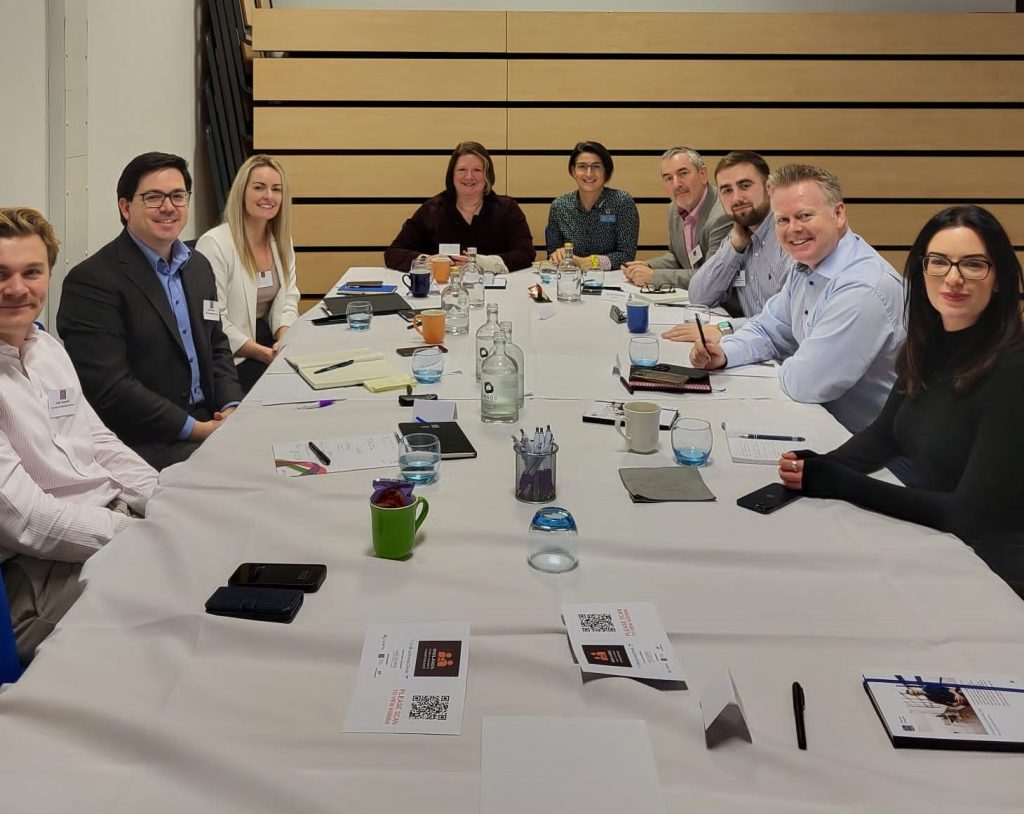
She said: “Trust is a theme that has constantly recurred today and there’s research that shows that family businesses are trusted far more by their consumers to introduce and take people through products and services.
“For us, we’ve been able to respond to the sustainable needs of consumers very quickly but we’ve always been tied to the anchor of our family. We’re able to be very agile, but any decision is always centred around the core belief of who we are and what we represent”.
The lines are well and truly blurred between business and home life, which can sometimes lead to complex emotions in family-run firms.
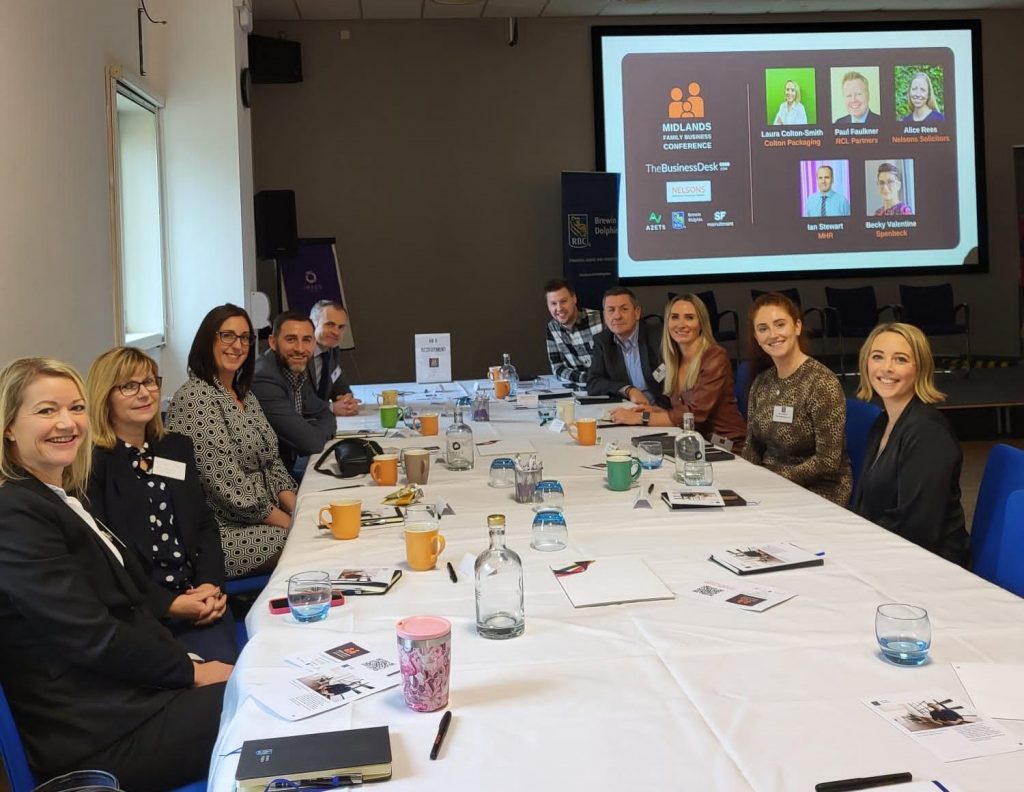
Rees said: “If you are selling a business and every aspect of that business has been scrutinised, it’s human nature to become very defensive about that and people can get very sensitive and emotional about that.
“At Nelsons we detail extensively a buyer’s or investor’s expectations and encourage our family businesses to get the right policies and contracts in place with their staff and supply chain – even if they’ve got no intention of selling at that moment in time.
“Having a plan in place ultimately avoids a disastrous transition post-exit”.

He said: “It’s a lot easier to have these challenging discussions after a trusting relationship has been formed.
“I love working for a family business because that trust is integral. The fact it is family-run is what makes it unique, special and successful. At RCL Partners, we are now a second-generation business but the first generation at 93 will continue to come in. It’s literally in the DNA”.
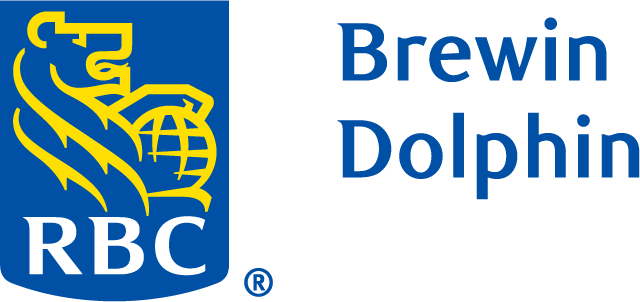
He said: “You shouldn’t take the emotion out of business and for a family business it means you strive that little bit harder.
“What makes our business special is not just the innovative products and platforms that have been developed – it’s the people”.
The family feeling is not just felt by those with shared DNA believes Laura Colton-Smith, managing director at Colton Packaging. Colton-Smith said one of the benefits of being a family business is that she understands her staff’s 
“This is how we’ve set ourselves apart. It’s imperative that we know all of our staff, that we’re approachable and we support them.
“We’re flexible towards their needs outside of work, as well as inside of work. And we’ve recently taken on a driver that was working for one of our competitors. He said to me a few months after he settled in that this job had changed his life – which I felt was a bit drastic! He said, no, I’m not just working anymore. Now, I’m working, I’m going home, and spending more time with my wife, I’ve joined a gym, and I’ve got the MD’s phone number and she texts me when I’m not very well”.
This family feel and connection between management and staff can also cause a tricky exit for sellers. Rees described the guilt of owners at what they are leaving behind and knowing their staff are in safe hands.
She said: “It’s evident that staff become family too and that means one of the hardest things within a transaction is managing emotion and trying to reassure founders and sellers that if they want their exit, then they can only do so much to protect that workforce.
“But it’s so rewarding to go on this journey with family-owned businesses and see the result of the transaction. Taking owners through the process and securing a great deal that might see a really strong management team coming up or to a fantastic third party.
“It’s so rewarding because you just know how much it means to them. It’s so personal”.


